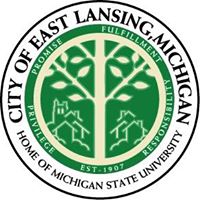 Country Mill Farms and legal advocacy group Alliance Defending Freedom is suing the City of East Lansing with a claim of religious discrimination. According to the complaint, the City of East Lansing acted to exclude “a farmer whose family farm is twenty-two miles outside the City from participating in its city-run farmers market solely because the City dislikes the farmer’s profession of his religious beliefs about marriage on Facebook.” CMF claims that the policy “violates the First and Fourteenth Amendments of the United States Constitution as well as state law that prohibits Michigan cities from regulating activities outside city boundaries.”
Country Mill Farms and legal advocacy group Alliance Defending Freedom is suing the City of East Lansing with a claim of religious discrimination. According to the complaint, the City of East Lansing acted to exclude “a farmer whose family farm is twenty-two miles outside the City from participating in its city-run farmers market solely because the City dislikes the farmer’s profession of his religious beliefs about marriage on Facebook.” CMF claims that the policy “violates the First and Fourteenth Amendments of the United States Constitution as well as state law that prohibits Michigan cities from regulating activities outside city boundaries.”
Read the Country Mill Farms complaint here.
I want to raise a legal question with this post. I do so because I think the CMF situation may have a broader application to how Christians think about sexual orientation discrimination.
Background of the Country Mill Farms Case
The City of East Lansing includes sexual orientation in their non-discrimination statement.
It is hereby declared to be contrary to the public policy of the City of East Lansing for any person to deny any other person the enjoyment of his/her civil rights or for any person to discriminate against any other person in the exercise of his/her civil rights or to harass any person because of religion, race, color, national origin, age, height, weight, disability, sex, marital status, sexual orientation, gender identity or expression, student status, or because of the use by an individual of adaptive devices or aids.
CMF operates a farm outside the city limits of East Lansing. They sell produce throughout mid-Michigan and host weddings on their farm. For years, CMF sold produce at a farm market in the city limits of East Lansing without incident. However, after CMF publicly declared their practice of referring gay couples to other vendors for weddings, the City of East Lansing changed their policy regarding approval of vendors for space to sell produce at their farm market. After the change, the city required that vendors operating at the farm market adhere to the non-discrimination code in their “business practices.” On this basis, East Lansing denied CMF space at the farm market.
The ADF complaint alleges that the City of East Lansing refused to allow CMF to sell at the market “solely because the City dislikes the farmer’s profession of his religious beliefs about marriage on Facebook.” Via the town’s Facebook page, I asked if the city took action based on the owners’ beliefs or their business practices. In reply, they said:
[I]t’s about their business practice, not their religious beliefs. The issue is that, as part of their business practice, they do not serve all couples.
According to the complaint, CMF referred at least one couple in the past to another farm and then issued this statement on their Facebook page in December 2016:
This past fall our family farm stopped booking future wedding ceremonies at our orchard until we could devote the appropriate time to review our policies and how we respectfully communicate and express our beliefs. The Country Mill engages in expressing its purpose and beliefs through the operation of its business and it intentionally communicates messages that promote its owners’ beliefs and declines to communicate messages that violate those beliefs. The Country Mill family and its staff have and will continue to participate in hosting the ceremonies held at our orchard. It remains our deeply held religious belief that marriage is the union of one man and one woman and Country Mill has the First Amendment Right to express and act upon its beliefs. For this reason, Country Mill reserves the right to deny a request for services that would require it to communicate, engage in, or host expression that violates the owner’s sincerely held religious beliefs and conscience. Furthermore, it remains our religious belief that all people should be treated with respect and dignity regardless of their beliefs or background. We appreciate the tolerance offered to us specifically regarding our participation in hosting wedding ceremonies at our family farm.
A court will decide if the City of East Lansing is discriminating based on the owners’ religious beliefs.
What If CMF’s Religious Beliefs Opposed Biracial Marriage?*
In all of these religious liberty cases, I have been wondering if Christians would rally to the side of religious liberty if the religious belief involved was to oppose biracial marriage. I have asked Alliance Defending Freedom three times if ADF would defend plaintiffs who refused to provide services to vendors who declined to serve biracial couples for religious reasons. To date, they have failed to answer. I asked CMF a similar question via CMF’s Facebook page, and they responded:
Thank you for your message.
You can follow the case at www.ADFLegal.org
God bless you!
Steve & Bridget Tennes
There are people who oppose biracial marriages on religious grounds. League of the South members run businesses; what if one of those people called on ADF to represent them in their religious liberty struggle?
I would like to address this as a matter of law. In the East Lansing ordinance, sexual orientation is listed along with race. Presumably, referring a biracial couple to another wedding vendor would be considered racial discrimination, even if for religious reasons. As a matter of law, how is it different to refer a gay couple? What if the CMF Facebook post said the following — It remains our deeply held religious belief that marriage is the union of one man and one woman of the same race and Country Mill has the First Amendment Right to express and act upon its beliefs? Would ADF defend them? Would Christian pundits write columns defending their religious liberties?
If the City of East Lansing is telling me the truth, CMF would be able to sell produce at the farm market if they served all couples, even if they  expressed publicly their disapproval of gay marriage. In the public square, I submit that the image on the coin is Caesar’s and that Christians should give to Caesar what is his. However, belief can submit to no earthly authority as a matter of conscience. If Christians want to follow Jesus’ teaching regarding our public involvement in jurisdictions with anti-discrimination laws which include sexual orientation, I don’t know how we can offer our services to some and not to others. Believe what you need to believe, but serve everyone as required by law.
expressed publicly their disapproval of gay marriage. In the public square, I submit that the image on the coin is Caesar’s and that Christians should give to Caesar what is his. However, belief can submit to no earthly authority as a matter of conscience. If Christians want to follow Jesus’ teaching regarding our public involvement in jurisdictions with anti-discrimination laws which include sexual orientation, I don’t know how we can offer our services to some and not to others. Believe what you need to believe, but serve everyone as required by law.
I still hope ADF will address this matter and provide their rationale for taking cases like CMF and Arlene’s Flowers if they won’t take the case of a League of the South member with religious beliefs opposing biracial marriages. Open discussion about these cases may take us closer to an ethical position which allows us to honor our religious loyalties while properly discharging our duties as citizens.
*Let me be absolutely clear. I do not believe CMF discriminates based on race, nor do I have any evidence that they would refuse to sell produce to anyone. I raise an analogy and seek opinions about why religious belief should trump anti-discrimination law for one class of persons but not for another.
